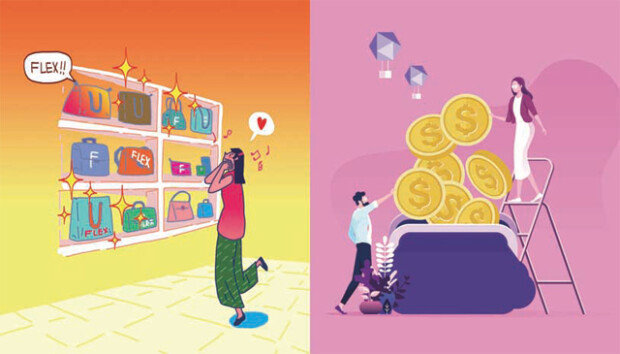The emergence of the ‘mean generation’ in China
The emergence of the ‘mean generation’ in China
Posted November. 02, 2020 08:17,
Updated November. 02, 2020 08:17

“Mean Boys” and “Mean Girls,” which are online communities of China’s social media Douban, now have more than 500,000 subscribers sharing information with hashtags such as “retaliatory saving,” “how to save,” and “saving tips” to become better savers. They share tips on how to survive a week on 20 yuan or ask people to talk them out of buying expensive items. This is part of the divergence in consumer behavior among young Chinese people in post COVID-19 era: Some are saving more to accumulate wealth, while others are spending more to satisfy pent-up demand.
The growing interest in saving is also reflected in statistics. Alipay, one of the third biggest payment systems in China, said those who were born after 1990 saved 40 percent more in the first half of the year, compared to the same period last year. Alipay’s survey is highly reliable as 134 million out of the 174 million Chinese people who were born after 1990 use the service.
In a survey by the Southwestern University of Finance and Economics of 28,000 Alipay users, more than half of the respondents replied that they would continue to spend less and save more after the pandemic. According to the Chinese government, household savings for the first quarter increased by 6.59 percent, which translates into an average of 71.1 billion yuan per day from January to March. In July, the following excerpt from the China Youth Daily suggests a possible reason for this new saving trend.
“Young people have started saving enthusiastically. They go as far as to moonlight using their spare time and capacity to earn extra money to save and are no longer satisfied with ‘a fixed payroll.’ They are realizing that having a safety net of cash is what will protect them from crises.”
The COVID-19 pandemic has served as a real wake-up call for Chinese consumers. In a survey by web portal Sina.com, 42 percent of the participants said they would not be able to last a day if they lost their job, while only 27 percent said they had enough money to get by for a year.
“Top five percent of the Chinese population, which is about 70 million, have 470,000 yuan on average in savings, while the remaining 95 percent have an average of 24,000 yuan. What is shocking is that 560 million people have zero balance in their bank account. We have spent for the Single’s Day, 6·18 and many other occasions, and an unbelievable amount of money has been spent on buying clothes and shoes. The coronavirus, however, has transformed our shopping behavior,” Lang Xianping, a prominent economist and the author of “Rich China, Poor Chinese People”, said on a TV program.
As Professor Lang pointed out, Chinese people’s shopping behavior has changed since the outbreak of the pandemic. Once notorious shoppers, the post-1990s generation have started paying attention to health, family and investment.
It is worth taking note of the new behavior of Chinese young consumers as the same pattern could emerge in South Korea in a few months. It is high time long-term solutions that will have a lasting impact were devised.
yoomadi@ckgsb.edu.cn







